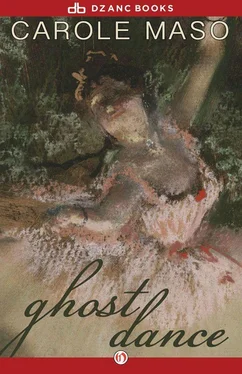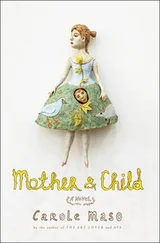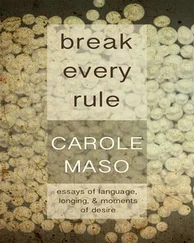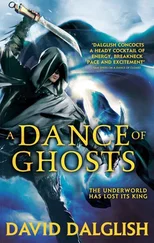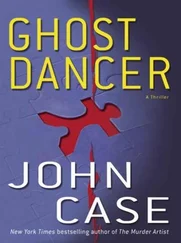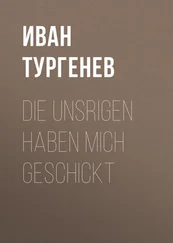The truth would be better, we thought. Inevitably though, when it came time to write my autobiography in ninth grade, mine was pretty good. It began:
“Aunt Anastasia, a morphine addict, looked to the sky and sighed, though her eyes were still covered by the sleeping mask she wore to bed each night. Even in complete darkness, Aunt Anastasia saw what most people never did.”
I liked my autobiography but agreed with the comment scribbled in the corner by some skeptical teacher: “This is good, but it lacks authenticity.” That’s what all those distant family members seemed, finally, to lack. I liked Aunt Anastasia especially, but I think she came from a Bertolucci movie my father took us to one dark afternoon. They all seemed like movie characters in the end somehow — distant, too easy to love.
I suppose they will look just like everyone else when I finally see them. If they could still talk, their concerns would probably be ordinary. If they could still talk, their concerns would be of money and weather, I’m sure of it. Nothing to be frightened of, Daddy. Nothing to hide.
We are sitting in a dark room together. Outside it is always raining. We are both thinking of Mother, who is far away, but neither of us mentions her. The music seems melancholy to me. Her flight from Paris will not arrive for five days yet. He is stretched out on the couch in the dark. I am lying on the floor. Soon he will get up and begin to conduct his imaginary orchestra, so moved is he by the music. He forgets that I am in the room at all until he is back on the couch again and I speak.
“Tell me some names, Daddy,” I whisper.
“Rameau,” he says.
“Rameau,” I say.
“Ravel,” he says.
“Ravel,” I say.
“Satie.”
“Satie.”
“Gabriel Fauré.”
“Gabriel Fauré.
“Saint-Saëns.”
The record ends. “Saint-Saëns,” I say into the silence.
If those relatives could still talk, their concerns would be simple, Daddy. They would beg us to eat. They would tell us that everywhere there are children who are starving.
I did not mean to leave you there with the Topaz Bird flying so near, its feathers pointed, its claws so sharp. I did not mean to leave you there alone, your New Year’s resolutions crumpled in your shaking hand, a pocketbook holding the whole weight of your great confusion.
After you left, Dad left, and after Dad, Fletcher, too. I never thought this would happen to us, that we would end up like this: hundreds of thousands of miles apart, flung like fish across the water, scattered like ashes.
They have already begun hanging this season’s wreaths. It’s hard to think of Christmas coming at all this year. You’d never know it’s November, it’s much too warm. Winter approaches tentatively — in a rush of cold air, a sudden chill at the back of the neck that comes from nowhere and then disappears as quickly. The last time I saw you it was January and there was snow. This year winter approaches with great awkwardness.
I would not place you in this uncertain season.
I try to picture you safe in some eternal summer — lying in a white hammock, your notebook open on your lap, above your head a slow fan blowing a cool breeze — a safe place, where a small woman brushes your beautiful hair and sings you songs and brings vou tiny sandwiches to eat.
I would not place you in this dangerous city — climbing in high heels three flights to some dark hallway, or sinking into a plush rug on Madison Avenue, or crying because no taxis come.
No, somewhere you are waiting and you are safe. Martinique? Guadeloupe? Crete? Somewhere you are all right, free finally of your jewelry, free of your awful accessories — light.
What I see sometimes is my real mother looking out at me from a place where she is not crazy at all, and she talks to me. “Vanessa, don’t let them put me here,” she begs. But there’s no convincing them. They are taking away her belt and necklaces. And we must leave her there, shivering, standing in her underwear.
From the fashion pages she reads to me of the new collections of Calvin Klein and Yves St. Laurent: the billowing sleeves, the padded shoulders, the pleated skirts. I dress her in my mind in the fashions of spring.
“And from the young designers,” she reads, “three-quarter-length coats in giraffe and leopard designs and wide, western-type lizard belts. And red hats,” she says, “shaped like snails!” She laughs and laughs, tilting her head back.
Although I walked through a fog of fashion, through hats and gloves, through linen, through fields of her silks, I recognized him immediately. I could not possibly have missed him; he was the man I had been looking for so long — an enormous man, a man so large he might blot out the sun with his body, a man whose great hands might wring the world of its oceans of salty tears. Did he recognize me, too, as the person he had loved long and hard in a silent, private part of his brain? I think he did, right from the start — that was the brutal handsomeness in his face as he got closer. He knew it all: that our love was doomed and that it had been doomed from the minute we had begun to imagine each other, long ago. He stepped forward anyway and tried to forgive in advance everything he knew would happen, just as I tried, too, as he came nearer.
He sweats as he comes toward me as if it is through great fire that he walks. Still, he does not rush, he savors each slow step, and with each step I feel a rumbling in my body, a disorder. What is this disturbance, this uneasiness, not altogether unpleasurable, this feeling that there is now here to go, no way out? What is this surrender? He stands in front of me, not knowing either, just staring at me. Beads of sweat collect on his forehead; he wipes them away with a handkerchief.
“This mildness will kill us,” he says, shaking his head, looking into the distance. He stares at a spot far off. “This haze we are forced to see everything through.” His eves return to me. He focuses in like a camera and holds me frozen in his words, his voice. I shiver.
“I have seen you here many times,” he says. “I have watched you here day after day. I have spent hours and hours on trains imagining you, your life.”
“I have never seen you before,” I say, “I would have remembered.”
“No,” he says quietly, then laughs. “You could not have seen me.” He laughs again. “I often imagine you are waiting for someone who will never return.”
“That’s not true,” I say.
“I have seen you look through this station, lost in the past, no hand in the present or future. I know that look by heart. You could not have seen me through such eyes.”
“I suppose you’re right.”
“You are waiting here for someone, for something. Am I wrong?”
I just look at him. His hands are the size of human heads. His thighs are the bodies of sleeping children.
“You never get on a train. You never rush, you move in slow motion, stand under the clock, move toward that ticket gate over there sometimes, then come back. I have invented many lives for you, made up many stories. But most of the endings are sad.”
“It doesn’t surprise me,” I say.
“Yeah,” he says, “but what you don’t know, is that you can change the ending. Close up you are even more beautiful than I had imagined you would be.”
I blush. I can feel his enormous body lowering onto mine, crushing me. His body could block out the sun. With his voice alone he could break apart people’s thoughts, stop the flow of memory. He could turn the whole world dark.
“This mildness will kill us,” he says. “November,” he says, shaking his head. He lights a cigarette. The smoke does not rise. “Someone has broken your heart.”
Читать дальше
